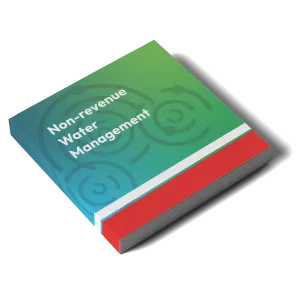Non-revenue Water Management
Overall learning outcome:
Participants are able to prioritize investments in utilities, improve the efficiency of water services, reduce costs and increase revenues by using theoretical and practical knowledge in managing non-revenue water in public utilities and develop effective NRW reducing strategy/action plan.

Specific learning outcomes:
- Participants are familiar with concept and approach in Non-Revenue Water management and their individual role in improving the operational performance of PUC and benefits resulting from implemented activities (water and energy savings, reduced water purchased and treated costs, improved water supply and obtained new quantity of water without large investments and construction of new water sources, increased billing and collection)
- Participants are familiar with monitoring performance indicators in Non-Revenue Water reduction projects (financial and operational)
- Participants are familiar with benefits of managing District Meter Areas and Pressure Management Areas
- Participants are familiar with priorities in reducing Non Revenue Water
- Participants are familiar with methodology and technology used in NRW reduction projects
- Participants are familiar with development of reducing NRW action plan and strategy.
Target group:
- Mayors
- General Managers of PUC’s, Technical/Financial Directors/Managers
- Highly positioned management staff from the Ministry of Environment and Physical Planning and the Ministry of Transport and Communications (State secretary, Heads of appropriate departments responsible for water sector and water related projects)
Key topics:
- Module 1: Introduction to Non-Revenue Water Management
- Definition and introduction to Non-Revenue Water (NWW), real and apparent water losses
- Water balance (top down and bottom-up approach)
- Concept and approach to NRW reduction
- Four basic strategies for reducing each real and apparent water losses
- Quantity of water lost depending on leak awareness, location and repair time
- Performance indicators for NRW projects (financial and operational)
- Module 2: Methodologies used in locating leaks and leak detection devices
- Leak localization (contact microphones, noise level loggers, step test)
- Leak location (ground microphone-geophone, correlator, gas locator, correlation noise loggers)
- Case study
- Advanced leak location technologies (satellite leak detection, ground penetrating radar (GPR), in-line techniques)
- Module 3: Management of District Metered Areas (DMA) and Pressure Management Areas (PMA)
- District Meter Areas implementation
- Flow and pressure measurements
- Minimum night flow analyse
- Implementation of pressure zones
- Type of pressure regulators
- Module 4: Development of a NRW Management Strategy/Action Plan
- Priorities in reducing NRW
- Strategy and action plan for reducing NRW (short-term, medium-term and long-term measures)
- Participation and role of decision makers on local level in NRW management
- Case studies of NRW projects showing achieved savings in water and money
Duration: 4 days in duration of 2 months (one day per module)
